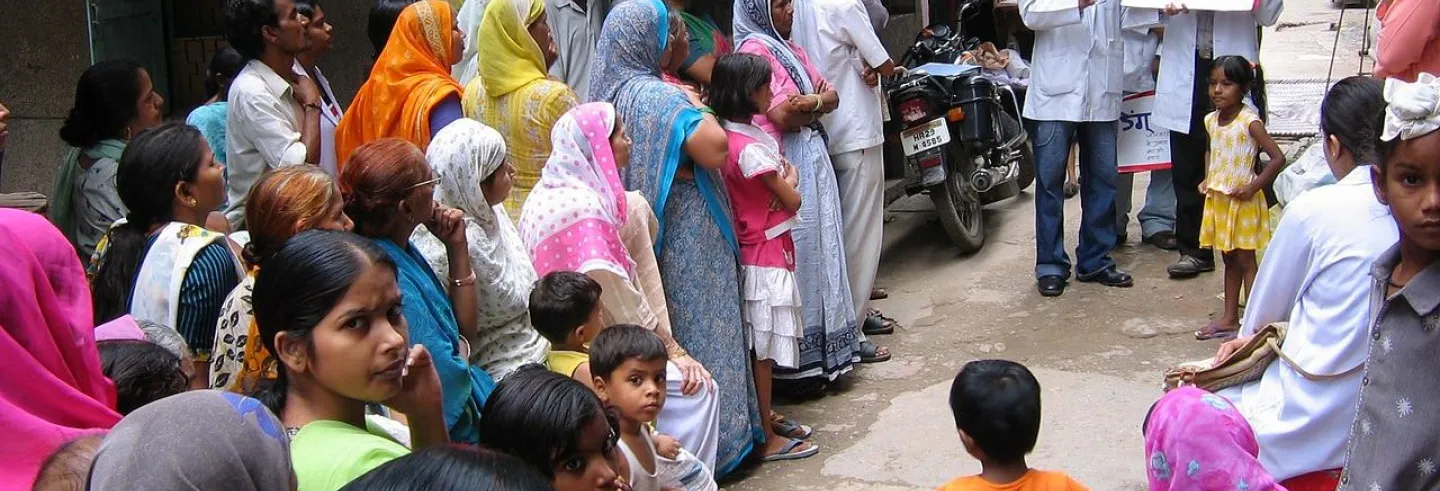India has had more than two months to prepare for a coronavirus outbreak. China reported the first case of Covid-19 disease to the World Health Organisation on December 31. India confirmed its first case on January 30. Since then, the Indian government has repeatedly claimed it has reviewed the country’s health systems and taken all steps needed to strengthen them. But the government has been tardy in revealing the specifics.
With India gearing up for the first day of a country-wide lockdown on Sunday, here are 10 urgent questions for the government put together by a collective of health reporters.
1. Health inventory
Has the health ministry finished counting how many doctors, nurses, ventilators, intensive care units are available in each state and district? If yes, why has this information not been released online to reassure the public, like most countries have done?
2. Private sector
How many beds and ventilators does India have in public and private hospitals which are installed and ready for immediate use for Covid-19 care? Will the ones in the private sector be deployed free of cost, like it is being done in other countries, especially Spain?
3. Access to care
Reports are emerging of hospitals turning away or evicting patients showing symptoms of the Covid-19 disease. What are the guidelines for public and private hospitals for examining, diagnostic sampling, admitting and referring such patients, if needed? Can any hospital refuse to entertain a suspected Covid-19 patient on grounds of lack of facilities?
4. Insurance scheme
Is the government thinking of offering Covid-19 care in its health insurance scheme Ayushman Bharat, which would allow private hospitals to take in patients for free? If so, how exactly does the government plan to do this?
5. Health worker safety
Does the government have enough safety equipment for health workers? Are those working in isolation wards being tested regularly? Why has the government not expanded the criteria to test doctors and nurses who care for Covid-19 patients, regardless of whether they have symptoms of the disease?
6. Transport to hospitals
The government has announced a country-wide lockdown on Sunday. If such lockdowns continue, how will patients with Covid-19 and other illnesses get to hospitals and back? How will supplies reach health systems?
7. Medicines and equipment
With the outbreak disrupting global supply chains, what steps has the government taken to ensure India does not see any shortages of drugs and medical equipment, other than banning exports?
8. HIV drug availability
There is an emerging concern about the hoarding and non-availability of antiretroviral drugs which have been approved for use in Covid-19 treatment. This may affect care for HIV patients. Does the health ministry have a plan to pre-empt this possibility?
9. Other diseases
Does the health ministry have a plan to ensure there are no breaks in treatment for other high-mortality diseases like tuberculosis and cancer? If so, what is the plan?
10. Information flow
Is there a swift data information system that allows everyone to access up-to-date information for every district on the number of Covid-19 cases tested, diagnosed, admitted, placed in intensive care, with details on recovery, discharge and deaths, if any? If not, how soon would such a system be up and running?
This article has been republished from Scroll.in
This work is licensed under a Creative Commons Attribution 4.0 International License. You are free to share and redistribute this material, as long as you provide attribution and indicate if changes were made.









